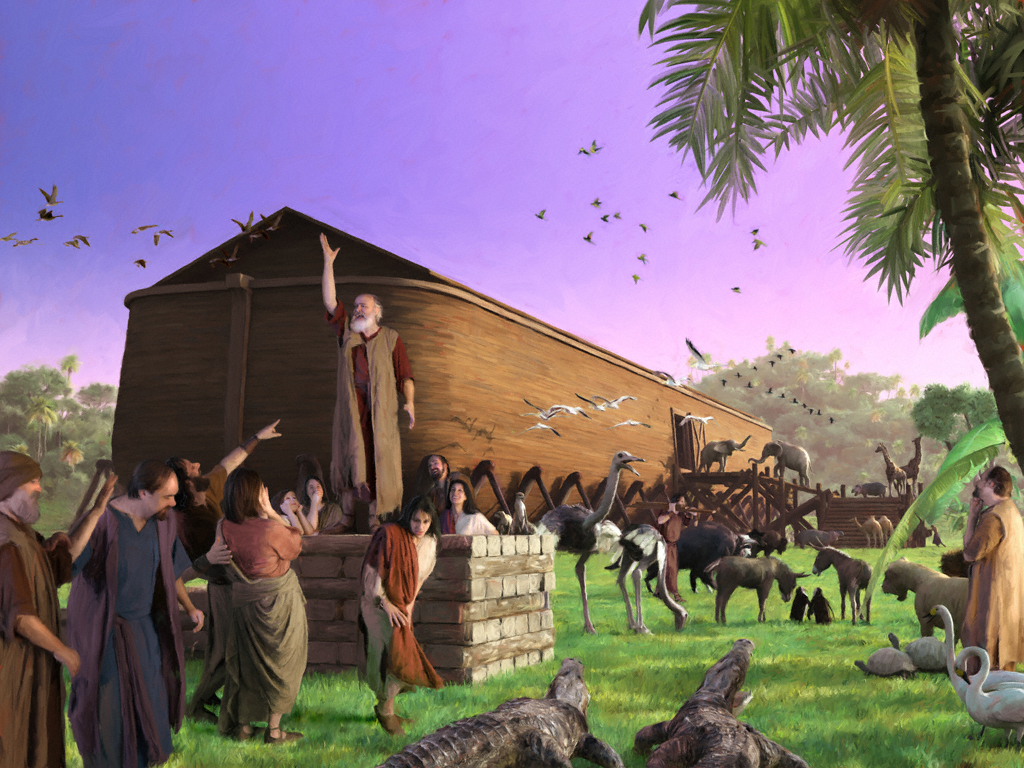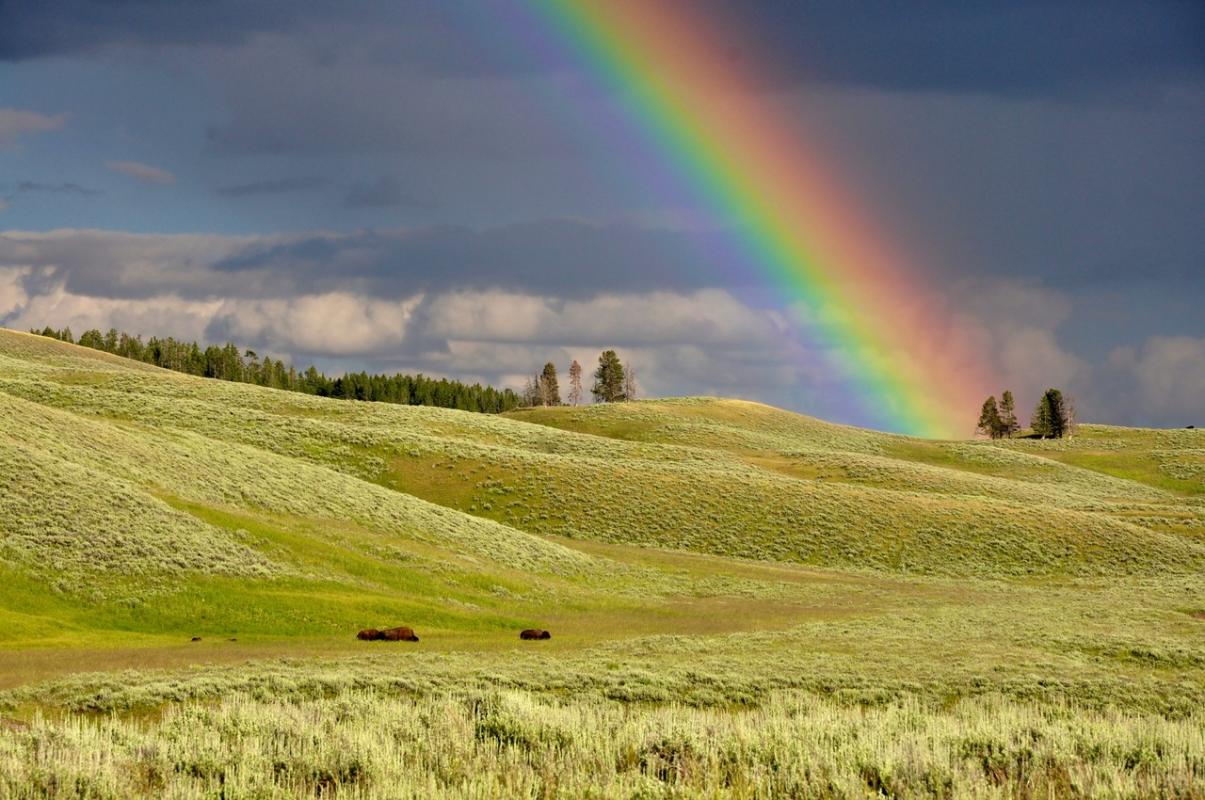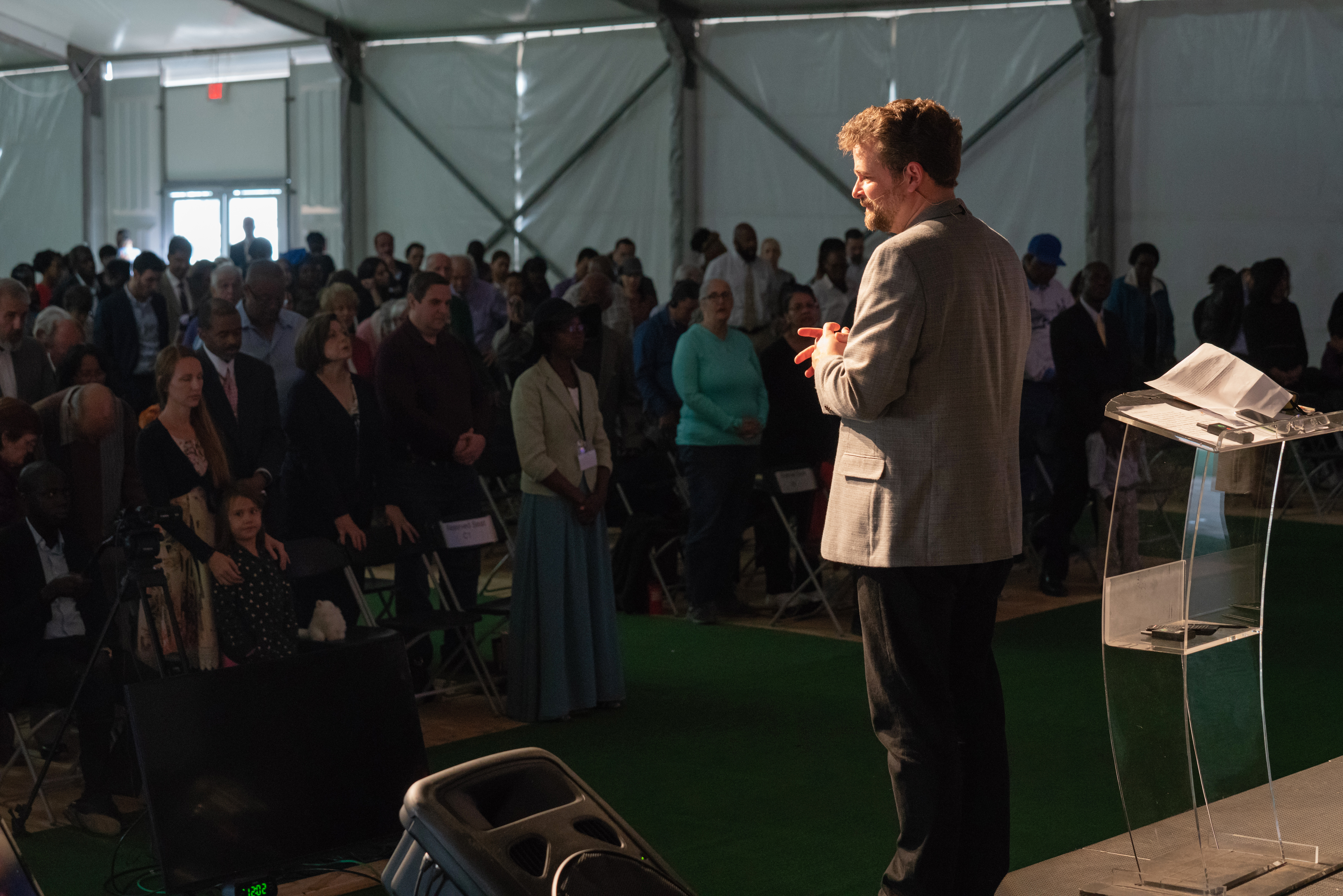
I Will Set My Bow in the Clouds
The biblical account of the flood is fascinating. Scripture records that after the fall, God "placed cherubim at the east of the garden of Eden, and a flaming sword which turned every way, to guard the way to the tree of life." (Genesis 3:24) Notwithstanding this powerful testimony of God's existence and the warning that it expressed regarding disobedience, Adam and Eve's descendants disregarded God's commands and embraced a life of violence and vice.
Approximately midway through the earth’s second millennia, sin had so permeated human existence that God lamented making man. "Then the Lord saw that the wickedness of man was great in the earth, and that every intent of the thoughts of his heart was only evil continually. And the Lord was sorry that He had made man on the earth, and He was grieved in His heart." (Genesis 6:4-6) In an unprecedented¹, desperate move to salvage a world gone mad, God decided to destroy His creation. "So the Lord said, 'I will destroy man whom I have created from the face of the earth, both man and beast, creeping thing and birds of the air. . .'" (Genesis 6:7)
Verse 8 continues, "But Noah found grace in the eyes of the Lord." The way the Bible writer expresses this thought strikes us as a parenthetical hiccup in God's new plan. It's as if the Godhead said, "That's it' we're done with them. Take them all out! But, what about Noah? Oh, that’s right!" I'm sure it wasn't quite like that, but it's startling nonetheless that only Noah found grace in the eyes of the Lord. God proceeds to communicate a plan of salvation to Noah—a strange plan (likely, up to that point, flood and rain were unheard of phenomena).
For the next 120 years², Noah worked on the ark and faithfully preached³ the apocalyptic message. Then the fateful day arrived. Noah was instructed to enter the ark with his family along with all the animals that God chose to save. Seven days later, ". . . all the fountains of the great deep were broken up, and the windows of heaven were opened. And the rain was on the earth forty days and forty nights." (Genesis 7:11-12) Genesis 7:23 says that God ". . . destroyed all living things which were on the face of the ground: both man and cattle, creeping thing and bird of the air. They were destroyed from the earth. Only Noah and those who were with him in the ark remained alive."
Months later, Noah and his family, along with all the animals, once again stepped on dry land. I can only imagine how the face of this planet had changed. No longer did it have the imprint of original perfection. Now, it lay waste—wounded and broken. What emotional intensity must have coursed through the hearts and minds of the eight lone survivors. Everything was gone! Before them, a vast empty wilderness. An eerie silence testified to the immutability of the law of God and the punishment of the wicked. If there was ever a time where Post Traumatic Stress Disorder would affect the survivors, the total annihilation of earth's inhabitants and land beasts would have been it.
In the midst of God’s strange act, how does one's faith not falter? What mechanism can the creator and "executioner" of mankind employ to demonstrate that He is a God of Love? How will the Lord calm the tension and ease the fear that inevitably lies deep in the heart of eight lonely, fragile and feeble survivors?
 Genesis 8:22 records that the Lord made a covenant with Noah and his family: "While the earth remains, seedtime and harvest, cold and heat, winter and summer, and day and night shall not cease." In Genesis 9, God asserts that He will never again destroy the earth with a flood. As a sign to us that His word is true, He set His bow in the sky. Genesis 9:16 says, "The rainbow shall be in the cloud, and I will look on it to remember the everlasting covenant between God and every living creature of all flesh that is on the earth."
Genesis 8:22 records that the Lord made a covenant with Noah and his family: "While the earth remains, seedtime and harvest, cold and heat, winter and summer, and day and night shall not cease." In Genesis 9, God asserts that He will never again destroy the earth with a flood. As a sign to us that His word is true, He set His bow in the sky. Genesis 9:16 says, "The rainbow shall be in the cloud, and I will look on it to remember the everlasting covenant between God and every living creature of all flesh that is on the earth."
What a blessing to serve a God that would provide us with such tangible evidence of His love. Every time we see His rainbow, we can be certain that He is patient and long-suffering. We can know that God truly cares. But the rainbow is not just for us. Read Genesis 9:15-16 again. God says that the rainbow is also for Him. When He sees it, He will remember the everlasting covenant.
This leads me to some profound questions. Would something other than a rainbow do? Is the sign really that important, or can it be substituted? What if man had the ability to substitute the rainbow for something more suited to our tastes? What if, instead of a rainbow in the sky, we collectively decided to do away with the rainbow and, after every rainstorm, make the oceans display a profusion of colors? Is that a dangerous proposition? I would say so. For the sake of our continued existence, we want the Lord to "remember" His covenant with us. With the rainbow, God established His preferred method of reminding Himself that He promised to spare us. To meddle with this would be suicidal on our part—wouldn't you agree?
With that in mind, it's interesting to me that there is another place in Scripture where God uses the same terminology. The Bible records another sign, everlasting covenant and tool of remembrance. It's found in Exodus 20 and is the fourth commandment of God's holy and immutable law.
"Remember the Sabbath day, to keep it holy. Six days you shall labor and do all your work, but the seventh day is the Sabbath of the Lord your God. In it you shall do no work: you, nor your son, nor your daughter, nor your male servant, nor your female servant, nor your cattle, nor your stranger who is within your gates. For in six days the Lord made the heavens and the earth, the sea, and all that is in them, and rested the seventh day. Therefore the Lord blessed the Sabbath day and hallowed it." (Exodus 20:8-11)
The Lord says that his Sabbaths are a "perpetual covenant." (Exodus 31:16) And in Ezekiel 20:20, among other texts, God instructs, "hallow My Sabbaths, and they will be a sign between Me and you, that you may know that I am the Lord your God." The seventh-day Sabbath is a sign of God's everlasting, perpetual covenant with mankind—expressing that He is our God and that He sanctifies us. (Exodus 31:13; Ezekiel 20:12)
So I pose the questions again: Would something different do? Is the sign really that important, or can it be substituted? What if man had the ability to substitute the Sabbath for something more suited to our tastes? What if, instead of the seventh day, we collectively decided to hallow another day in its place? Is that a dangerous proposition? I would say so. For the sake of our sanctification, we want to "remember" our Lord and for Him to "remember" His everlasting covenant with us. With the seventh-day Sabbath, God established His preferred method of being remembered, and He promises to not only justify us but to sanctify us onto glorification. (Romans 8:30) To meddle with this would be suicidal on our part—wouldn’t you agree?
______________________
¹ Ezekiel 28, Isaiah 14 and Revelation 12 record the fall of Lucifer and one-third of the angels of heaven. It's interesting to note that God chose not to immediately quash the rebellion by destroying these wicked beings. Notwithstanding the need to vindicate His character by allowing sin to take its toll, apparently, the world was in such state of disrepair that God found little choice but to wipe the slate clean before the Messiah had even come.
² "And the Lord said, 'My Spirit shall not strive with man forever, for he is indeed flesh; yet his days shall be one hundred and twenty years.'" (Genesis 6:3)
³ "And did not spare the ancient world, but saved Noah, one of eight people, a preacher of righteousness, bringing in the flood on the world of the ungodly." (2 Peter 2:5)


